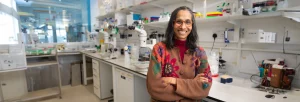(April 18, 2025) When Gagandeep Kang walks onto a global stage, whether in the corridors of the World Health Organization or at the Bill & Melinda Gates Foundation, she carries with her not just the weight of scientific achievement, but the spirit of service deeply rooted in India. Revered as India’s ‘Vaccine Godmother’, Kang has spent over three decades fighting for a healthier future for the country’s most vulnerable populations, especially its children.
From leading groundbreaking rotavirus research at the Christian Medical College (CMC) in Vellore to shaping global enteric disease strategies at the Gates Foundation, the microbiologist and virologist’s journey is one of scientific brilliance grounded in deep compassion. Her work is not merely scientific; it is human. It is about impact. It is about giving back to a nation that shaped her, one discovery, one trial, and one policy at a time.
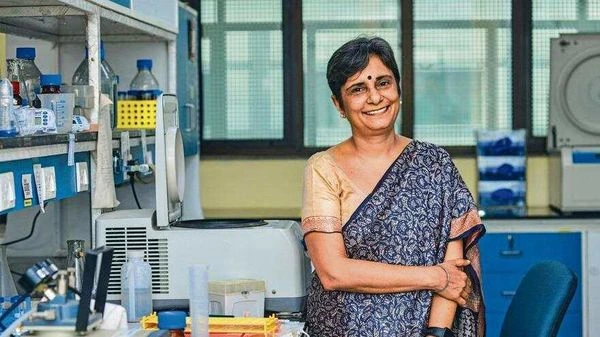
Dr Gagandeep Kang
Early experiments and enduring values
Born in Shimla in 1962, Kang grew up in a family defined by tenacity and intellectual curiosity. Her parents, both displaced by the Partition, instilled in her the values of lifelong learning and perseverance. Her father, a mechanical engineer, built a laboratory with her at home when she was just 12 years old. “He taught me there’s never a wrong time to learn something new,” Kang recalls.
Those early experiments in biology, chemistry, and physics weren’t just childhood games, they were the beginning of a scientific mind that would later reshape India’s health landscape. Kang earned her MBBS in 1987 and her MD in Microbiology in 1991 from Christian Medical College (CMC), Vellore. She returned to her alma mater after a PhD and postdoctoral stint at the Baylor College of Medicine, Houstan in the United States, driven by the urge to serve India through science.
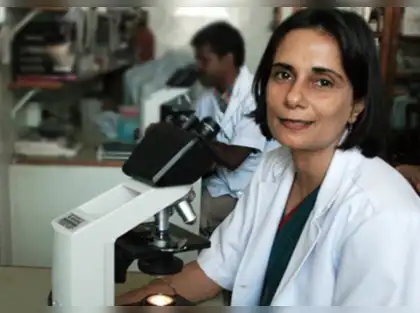
Dr Gagandeep Kang during her younger days
A life built on data, driven by service
Kang’s professional creed was carved at CMC Vellore, whose motto “To minister, not to be ministered unto” has stayed with her throughout her journey.
Whatever you do, it has to be about service.
Gagandeep Kang
That passion for service took the form of gritty, ground-level cohort studies in rural India where Kang made children part of her study even before birth and followed them for years to track the effects of diarrheal diseases. Some of those children are now grown, with kids of their own. “One of the fathers came to me years later and said, ‘Now I know why you did that study,’” she remembers fondly.
Her research uncovered the staggering burden of rotavirus infections in Indian children and the underperformance of oral vaccines in local settings. Instead of accepting limitations, she sought solutions. Her studies, often blending lab-based science with rigorous epidemiology, informed not just academia but health policy across India.
The making of Rotavac and a public health legacy
Among Kang’s most consequential contributions is her role in the development and clinical trials of Rotavac, the indigenous rotavirus vaccine created by Bharat Biotech. As one of three principal investigators in the Phase III clinical trials, Kang helped ensure that India could produce an affordable vaccine tailored to its specific needs. The results were revolutionary: a life-saving intervention that could be delivered through national immunisation programmes, especially in underserved communities.
“We began by trying to replicate a study from Mexico to identify correlates of protection. That initial effort didn’t succeed, but it led to something more important – new laboratory methods, new vaccine assays, and eventually, a vaccine,” she says.
Rotavac is now administered to millions of Indian children, drastically reducing the burden of diarrheal disease. And yet, Kang never claims the spotlight alone. “My impact,” she insists, “is the people who worked with me.”
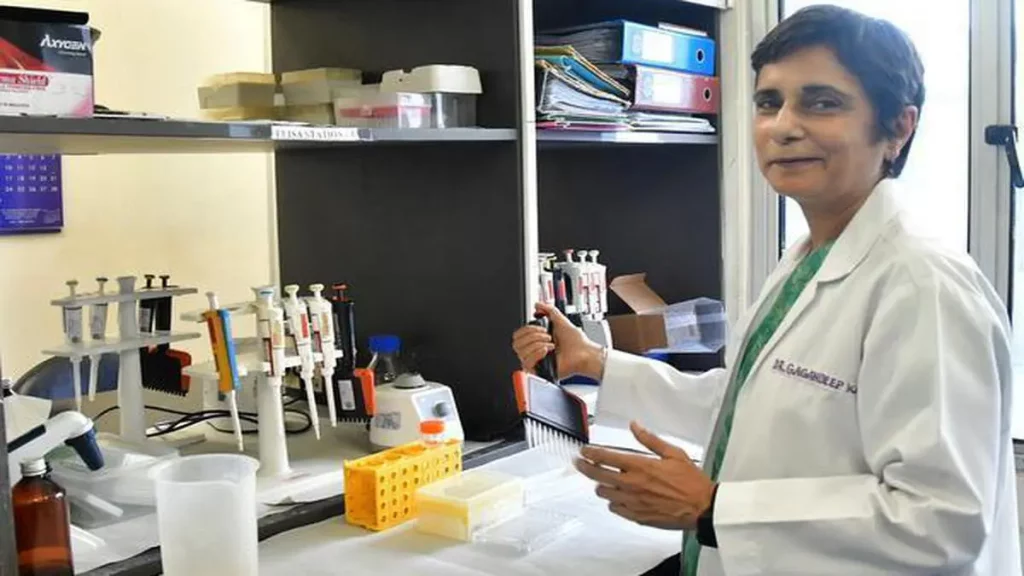
Dr Gagandeep Kang
From Vellore to the Gates Foundation
In 2023, Kang joined the Bill & Melinda Gates Foundation as Director of Enteric Diagnostics, Genomics, and Epidemiology. While it may seem like a global leap, she views it as a natural progression of her lifelong mission of solving public health challenges with evidence and empathy. “If anything, the foundation has increased the possibilities,” she says. “It allows me to bring resources to those problems that I wouldn’t have had as an individual researcher.”
My focus has always been on impact, and on people for whom finding the right interventions and framing policy is hard.
Dr Gagandeep Kang
Her global role hasn’t diluted her national priorities. She continues to serve on India’s National Technical Advisory Group on Immunisation, as well as advisory committees at WHO, including those on vaccine safety and implementation. She also played an integral role in India’s COVID-19 response, co-authoring Till We Win: India’s Fight Against the COVID-19 Pandemic, alongside Dr. Randeep Guleria and Dr. Chandrakant Lahariya.
Championing data, mentorship, and ambition
For Kang, impact isn’t only measured in vaccines delivered or papers published (though she has over 300). It is reflected in the scientific culture she nurtures. “Follow the data,” her mentors at CMC had told her. “If the data doesn’t match your hypothesis, it’s probably your framing that’s wrong.”
She now teaches the same to younger scientists, especially women, encouraging them to ask ambitious questions and pursue rigorous evidence. The U.S. based scientist is proudest not of individual accolades, but of those she has empowered to lead the next generation of research.
In 2019, Kang became the first Indian woman elected Fellow of the Royal Society. It was a historic recognition that celebrated not only her scientific contributions but also her role as a torchbearer for Indian women in STEM.
A life of giving back
Despite her global recognition, Kang’s heart remains firmly tied to India. “The people, the problems, the possibilities, all of it draws me back,” she reflects. Her story is all about the power of returning knowledge, talent, and compassion to the communities from which they emerged.
Whether it’s developing vaccines for Indian children, training young scientists, or influencing public health policy, Kang’s trajectory proves that world-class science can, and must be rooted in service. She believes that data-driven decisions, when applied with humility and cultural understanding, can change lives.
Her personal story, like the Punjabi song she referenced during an award ceremony, is born of Partition, progress, and perseverance. “Everything I am, I learned from my parents and sister,” she said, paying tribute to a family that taught her the power of learning and doing.
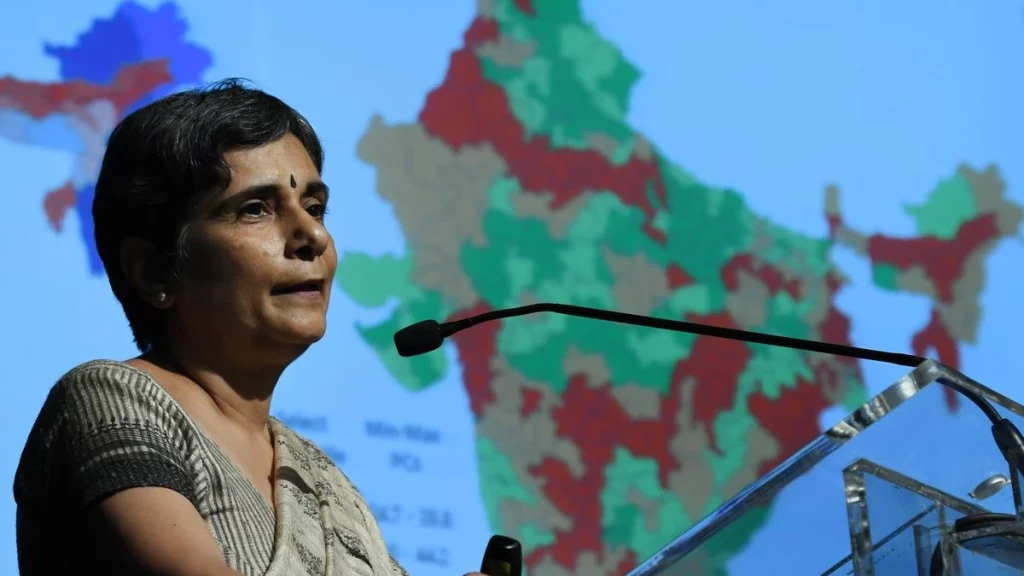
Dr Gagandeep Kang
Science with soul
Now in her early sixties, Kang shows no signs of slowing down. Her commitment to fighting infectious diseases, be it through vaccine trials, sanitation studies, or genomic epidemiology continues with undimmed intensity. What drives her is not prestige, but people. Not just India’s past, but its future.
“I’m grateful,” she says. “Grateful that I get to work on problems that matter, in ways that can actually make a difference.”
Gagandeep Kang’s journey reminds us that science, when driven by purpose and anchored in humility, is the most powerful form of service.
- Follow Gagandeep Kang on LinkedIn
ALSO READ: Meet Jonathan Iralu, the Naga-origin doctor who has a day dedicated to him in New Mexico


